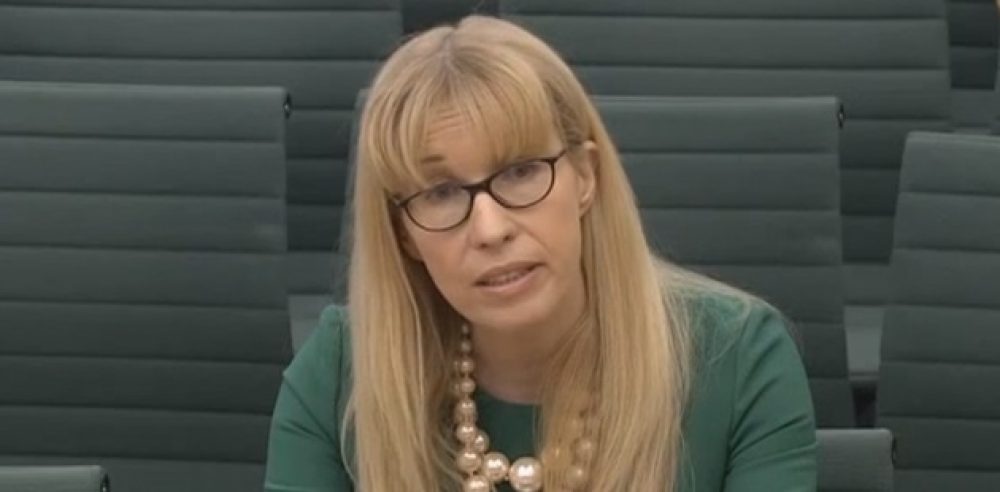The exams watchdog Ofqual is struggling to link school exam results to teaching quality, its chief regulator has admitted.
Sally Collier told a group of politicians and academics this morning that she was “finding it very difficult” to say to what extent rises and falls in GCSE and A level results were down to better teaching or other factors.
It follows a period of widespread reform of curriculum and assessment in England, designed to limit grade inflation and ensure the proportions of pupils achieving top grades remained roughly consistent year-on-year.
Critics of the changes have said that the changes – known as comparable outcomes – mean genuine improvements in teaching are now difficult to discern.

During a session on educational standards chaired by academy trust founder, Lord James O’Shaughnessy, Collier said schools were “rightly saying” they wanted to attribute recent rises in GCSE and A-level results to better teaching.
“I’m finding it very difficult to disentangle when the results go up or down to what extent it’s to do with better teaching,” she said. “We’ve published some research last week that says when you introduce a new curriculum, when you make all these changes, there is an impact on results.”
Last week Ofqual released a report into the ‘sawtooth effect’ of assessment reform, which revealed the regulator could not separate increases occurring in test results from those which are due to familiarity with the subject and genuine improvements in ability.
The report noted that as teachers become experienced in teaching the contents of a particular exam, results increase. When exam papers are changed results tend to tumble initially before climbing again – creating a ‘sawtooth effect’.
At the event, Collier accepted criticism from several delegates, including O’Shaughnessy, of the current system of standards faced by schools.
In response she said that some aspects of exams were still “imprecise and then we pin all our accountability measures on it” which caused “unnecessary tension in the system”.
An Ofqual spokesperson said the challenge of unravelling the factors influencing results were “well-documented, including in our own recent research”.
The introduction of national reference tests for 16 year-olds this year is designed to help with the puzzle.








Do any of these changes to the curriculum make a blind bit of difference to how well educated students are? Adults in key posts were educated years before all these changes were ever thought of. How is it possible for a workforce of 500,000 teachers to keep improving? Huge amounts of energy and stress are expended for what purpose? It is never ending. No wonder no-one wants to be a teacher anymore. How about just leaving everything alone for 10 years. Scrap educational research completely. Scrap any changes to exams or structures. Teachers can become master craftsmen and women again. Stress levels will fall. Teachers will enjoy their work. Students will be happier. There will be fewer visits to GPs. So everything gets better, and it’s cheaper.
The only people who would be miserable would be politicians.
The real issue is not whether teaching is improving, but the extent to which it is getting worse and the reasons for this.
A study by Flynn (2009) found that tests carried out on British children in 1980 and again in 2008 show that the IQ score of an average 14-year-old had dropped by more than two points over the period. For the upper half of the ability range the performance was even worse. Average IQ scores declined by six points.
This apparent recent reversal of the Flynn effect (well established year-on-gains in IQ) in England is confirmed by a parallel study carried out in 2005/6 by Michael Shayer and Denise Ginsburg (but not published until 2009), and gives weight to my key contention that educational standards in England are falling as a consequence of the degrading of the education system caused by marketisation. The decline in KS2 noted by Shayer, Coe and Ginsberg (2007) showed an even bigger effect than that recorded by Flynn: the 11 year-olds were testing at the level of 9 year-olds in 1976.
The Flynn effect has been widely researched and explored in the context of rising IQs. If environmental factors such as good developmental teaching can account for growth of cognitive ability over time then it follows that poor teaching of the wrong sort can account for a decline. Shayer and Ginsburg found such a decline.
This is a key concept in my argument that the English education system could be ‘making our kids dimmer’ at the same time as stuffing them with qualifications. This article suggests that this can be explained by qualitative shifts in the teaching and learning approaches in the English school system arising from its increasing marketisation.
https://rogertitcombelearningmatters.wordpress.com/2016/09/09/plastic-intelligence-ebacc-and-the-cognitive-underclass/
It also produces evidence from four separate sources that IQ is plastic and that its development should be the focus of teaching in our schools.
The opposite has been the case as the re-emergence of behaviourist, ‘drill and practise’ teaching has replaced developmental approaches with disastrous consequences.
It has always amazed me that those so called experts who have never taught a class in their life have the most to say about it!! Teachers know what it takes and do not need advice from those who have jobs that give advice but never do the practical work a teacher does every day.If they spent some time in schools they would have a completely different perspective of what teachers do and then perhaps the teaching profession would listen.
Exactly. I was at the Education Committee Conference yesterday which discussed the aims and quality of education in England. One speaker said education had become increasingly politicised in recent years and subjected to increasing levels of political interference. Few of these politicians have ever taught but they seem to have an inflated confidence in their opinions (or prejudices) about how children should be taught.